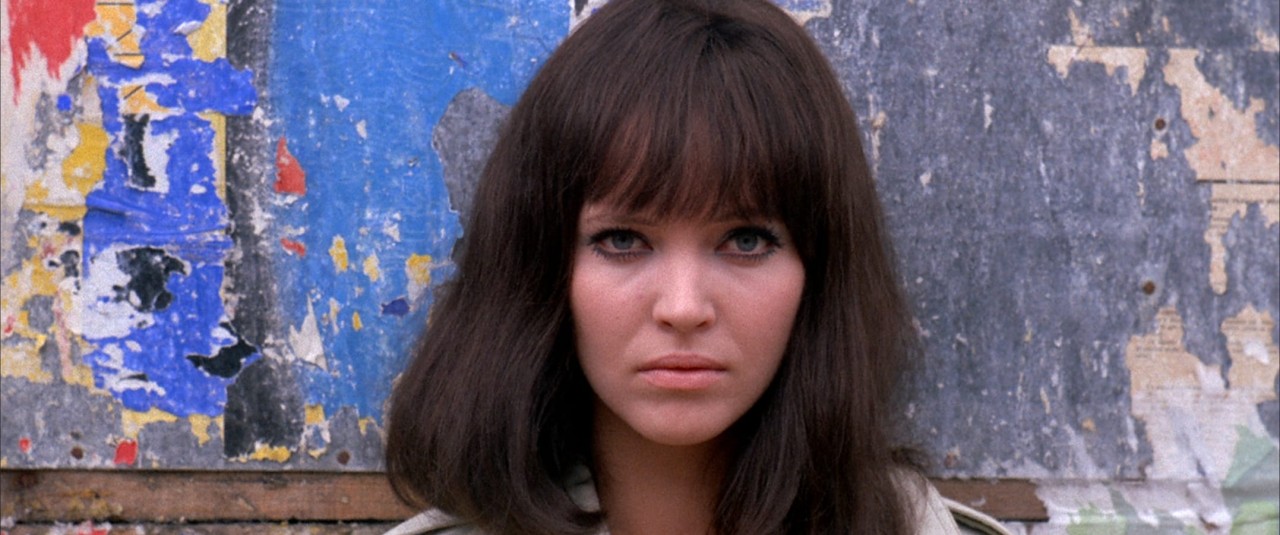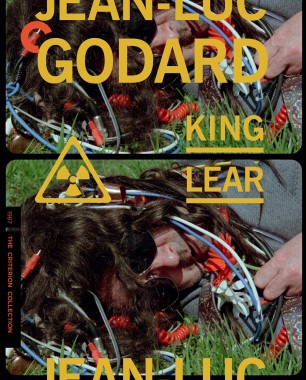Made in U.S.A

With its giddily complex noir plot and color-drenched widescreen images, Made in U.S.A was a final burst of exuberance from Jean-Luc Godard’s early sixties barrage of delirious movie-movies. Yet this chaotic crime thriller and acidly funny critique of consumerism—starring Anna Karina as the most brightly dressed private investigator in film history, searching for a former lover who might have been assassinated—also points toward the more political cinema that would come to define Godard. Featuring characters with names such as Richard Nixon, Robert McNamara, David Goodis, and Doris Mizoguchi, and appearances by a slapstick Jean-Pierre Léaud and a sweetly singing Marianne Faithfull, this piece of pop art is like a Looney Tunes rendition of The Big Sleep gone New Wave.
SPECIAL EDITION FEATURES
- Restored high-definition digital transfer
- Interviews with stars Anna Karina and Lászlo Szábó
- A video piece on the personal and the political in Made in U.S.A and 2 or 3 Things I Know About Her, featuring Godard biographers Richard Brody and Colin MacCabe
- A visual essay cataloguing the multiple references in the film
- Original and rerelease theatrical trailers
- PLUS: An essay by film critic J. Hoberman
Cover by Jason Hardy
SPECIAL EDITION FEATURES
- Restored high-definition digital transfer
- Interviews with stars Anna Karina and Lászlo Szábó
- A video piece on the personal and the political in Made in U.S.A and 2 or 3 Things I Know About Her, featuring Godard biographers Richard Brody and Colin MacCabe
- A visual essay cataloguing the multiple references in the film
- Original and rerelease theatrical trailers
- PLUS: An essay by film critic J. Hoberman
Cover by Jason Hardy

Cast
- Anna Karina
- Paula Nelson
- Jean-Pierre Léaud
- Donald Siegel
- László Szabó
- Paul Widmark
- Marianne Faithfull
- Herself
- Ernest Menzer
- Edgar Typhus
- Kyôko Kosaka
- Doris Mizoguchi
- Marc Dudicourt
- Barman
- Yves Afonso
- David Goodis
- Jean-Luc Godard
- Richard Politzer (voice)
- Roger Scipion
- Dr. Korvo
- Sylvain Godet
- Robert McNamara
- Jean-Pierre Biesse
- Richard Nixon
- Claude Bouillon
- Inspector Aldrich
- Philippe Labro
- Himself
Credits
- Director
- Jean-Luc Godard
- Screenplay
- Jean-Luc Godard
- Based on the novel The Jugger by
- Richard Stark
- Cinematography
- Raoul Coutard
- Editing
- Agnès Guillemot
- Sound
- Jacques Maumont
- Sound
- René Levert













